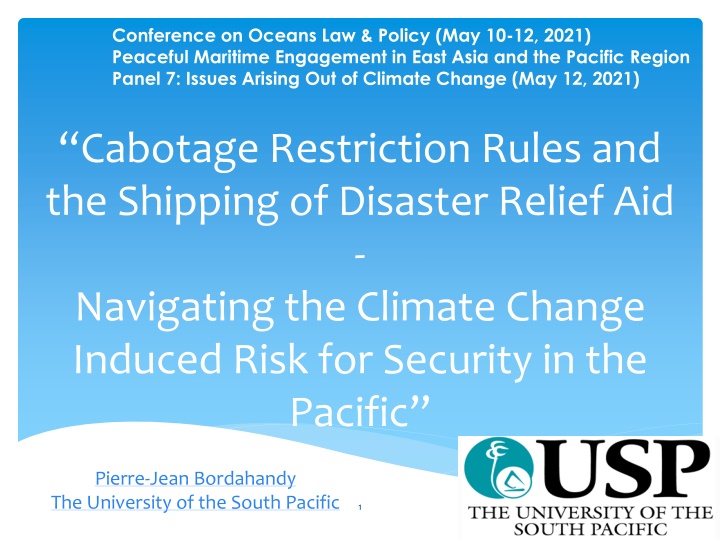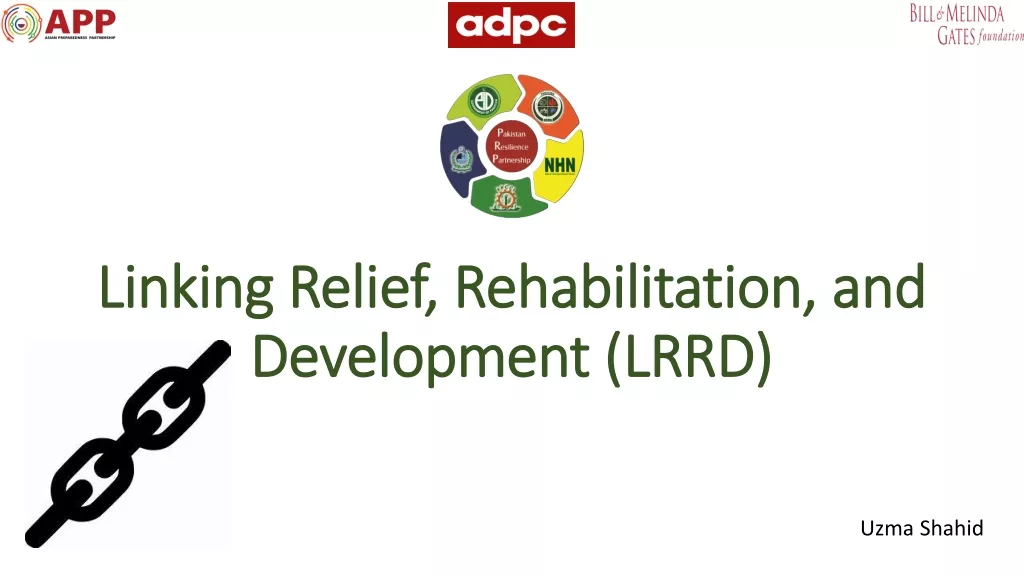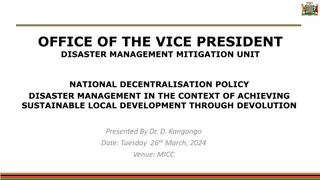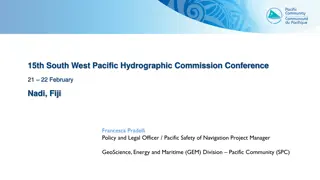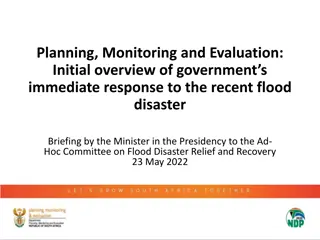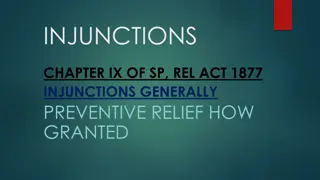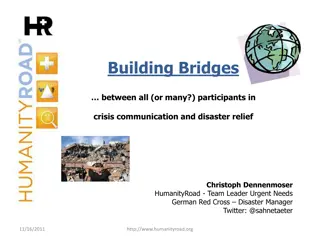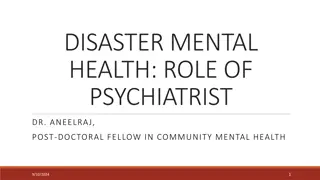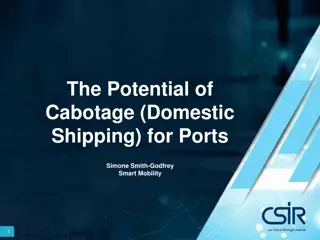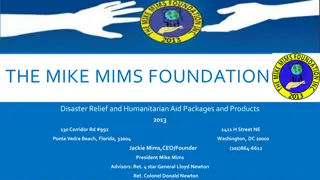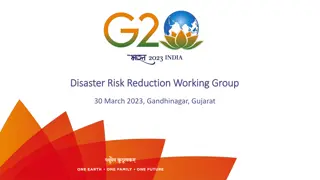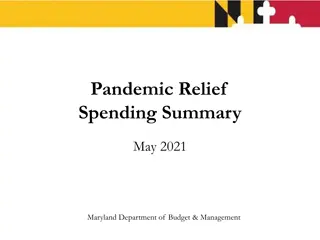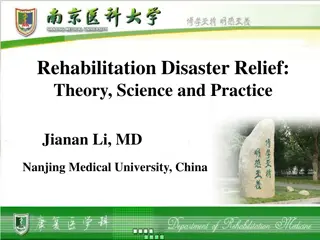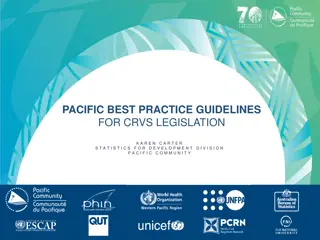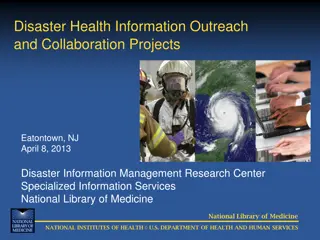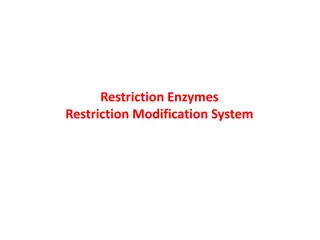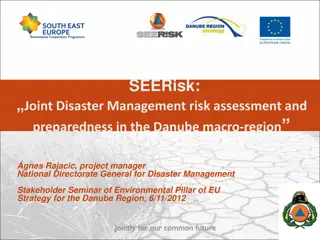Cabotage Restriction Rules and Disaster Relief Aid in the Pacific Region
This paper explores the implications of cabotage restriction rules on the shipping of disaster relief aid in the Pacific region, emphasizing the necessity for consent and waivers. It delves into the complexities of International Disaster Relief Law (IDRL) versus Humanitarian Law and the multidisciplinary nature of addressing such challenges. The analysis highlights the challenges faced in securing cooperation and consent from affected states for effective disaster relief operations beyond cabotage regulations.
Download Presentation

Please find below an Image/Link to download the presentation.
The content on the website is provided AS IS for your information and personal use only. It may not be sold, licensed, or shared on other websites without obtaining consent from the author.If you encounter any issues during the download, it is possible that the publisher has removed the file from their server.
You are allowed to download the files provided on this website for personal or commercial use, subject to the condition that they are used lawfully. All files are the property of their respective owners.
The content on the website is provided AS IS for your information and personal use only. It may not be sold, licensed, or shared on other websites without obtaining consent from the author.
E N D
Presentation Transcript
Conference on Oceans Law & Policy (May 10-12, 2021) Peaceful Maritime Engagement in East Asia and the Pacific Region Panel 7: Issues Arising Out of Climate Change (May 12, 2021) Cabotage Restriction Rules and the Shipping of Disaster Relief Aid - Navigating the Climate Change Induced Risk for Security in the Pacific Pierre-Jean Bordahandy The University of the South Pacific 1
Introduction Definition of Cabotage / Cabotage Restriction Rules Context of the Pacific and where the issue arises Magnitude of the problem / justification of the study Taxonomy of the issue - IDRL versus Humanitarian Law Multidisciplinary nature of this study Thesis or demonstration endeavoured in this paper Presentation of the analytical structure of this paper: I. Cabotage restriction rules waiver as a condition necessary to disaster relief A. The need for consent to cabotage rules waiver for disaster relief B. The need for cabotage waiver for disaster relief II. Cabotage restriction rules waiver as a condition not sufficient to disaster relief A. The control of the affected state in relation to other shipping matters B. The control of the affected state in relation to non-shipping matters Conclusion 2
Analysis Developments I. Cabotage restriction rules waiver as a condition necessary to disaster relief A. The need for consent to cabotage rules waiver in situation of disaster relief 1. Texts of reference and international justifications for the consent 2. Critical appraisal of the consent less approach in the context of IDRL 3. The possible structures for consent B. The need for cabotage rules waiver in situation of disaster relief 1. Relevant texts and international justifications 2. Empirical justifications & illustrations of waivers 3. Scope of the waiver II. Cabotage rules waiver as a condition not sufficient to disaster relief A. The control of the affected state in relation to other shipping matters 1. Vessel status 2. Crew status (immunity, liability, etc.) 3. Shipping Container related Issues B. The control of the affected state in relation to non-shipping matters 1. Custom clearance & status of imported goods including UBD 2. Phyto-sanitary aspects of disaster relief 3. Pandemic aspects of disaster relief Conclusion 3
Conclusion IDRL is difficult to envisage without the consent of the affected state and interference without the affected state consent does not seem to be supported by PIL, nor does it appear desirable to be so. This is particularly true in the South Pacific. Cabotage Restriction Rules waiver consented by affected states are not sufficient to permit actual disaster relief aid to be supplied. Many other barriers of very different legal natures have also to be addressed. Even if a state or an organisation decided to intervene / interfere without its consent, that interfering state would be in breach of many obligations (commercial, maritime, phyto-sanitary, customs, etc) once actual disaster relief operations would commence. This could lead to various types of liability depending on the breach. Given the need to secure cooperation and consent of the affected state in relation to all sub-aspects of the disaster relief operation beyond cabotage, there is a need for an authoritycentralising all these competences from that state. Conversely, there is a need for a Disaster Relief Aid Coordinator organising the input and contributions of Disaster Relief Aid Actors. Each should have a clear liability regime of operation and action. The preparation of a detailed cargo and persons manifest that should be accepted by the affected state before the departure of the disaster relief vessel . The standalone treaty option that was recommended to the WFP, will be a long time coming and will probably require to be adapted region by region. 4
THE END Thank you Merci TACK S MYCKET Tankyu Tumas Vinaka Vaka Levu Fa afetai lava 5
